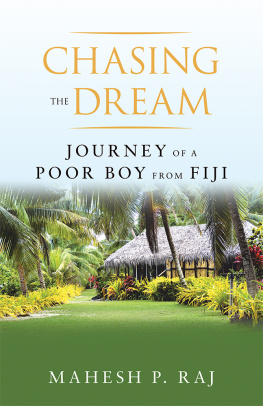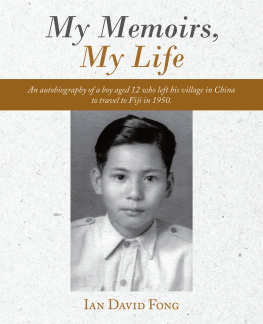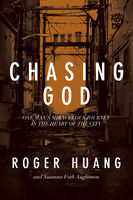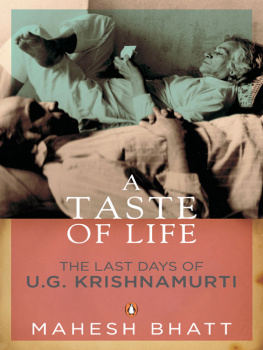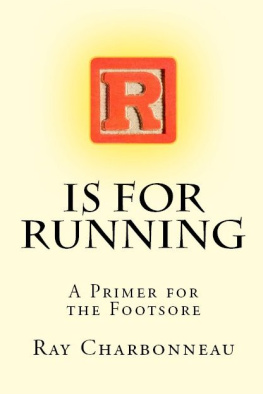Chasing
the Dream
Journey of a poor boy from Fiji
MAHESH P. RAJ

CHASING THE DREAM
JOURNEY OF A POOR BOY FROM FIJI
Copyright 2019 Mahesh P. Raj.
All rights reserved. No part of this book may be used or reproduced by any means, graphic, electronic, or mechanical, including photocopying, recording, taping or by any information storage retrieval system without the written permission of the author except in the case of brief quotations embodied in critical articles and reviews.
iUniverse
1663 Liberty Drive
Bloomington, IN 47403
www.iuniverse.com
1-800-Authors (1-800-288-4677)
Because of the dynamic nature of the Internet, any web addresses or links contained in this book may have changed since publication and may no longer be valid. The views expressed in this work are solely those of the author and do not necessarily reflect the views of the publisher, and the publisher hereby disclaims any responsibility for them.
Any people depicted in stock imagery provided by Getty Images are models, and such images are being used for illustrative purposes only.
Certain stock imagery Getty Images.
ISBN: 978-1-5320-8101-9 (sc)
ISBN: 978-1-5320-8279-5 (hc)
ISBN: 978-1-5320-8102-6 (e)
Library of Congress Control Number: 2019913548
iUniverse rev. date: 02/18/2020
Contents
I n December 1947, a baby boy was born weighing less than 4lbs, in the small village of Kasavu Nausori, in the Fiji Islands.
The Fiji Islands is a country in the South Pacific. It is made up of more than 300 islands. Within Fiji, there is a very large East Indian population. Their history and heritage have always posed many questions. How did they get to Fiji? We know theyre from India, but exactly what part of India are they from?
The East Indians from Fiji have mostly descended from labourers from districts of the central and eastern parts of Uttar Pradesh, a Province of India. They were brought to Fiji by British Colonial rulers between 1879-1916 to work on sugar cane plantations.
After five years of hard work, these labourers were given the choice of returning to India at their own expense or to remain in the Fiji Islands.
The type of work these labourers endured was very strenuous and demanding. It wasnt just the men who had to work the fields, the women were put to work too. Even mothers, they would have to tie their babies on their back and work in the plantation all day, and then afterwards prepare food for their families. This boys mother was no different, she tied her baby on her back, and worked all day on the plantation.
No one in the family thought this baby would survive. He was born premature, and very weak. There wasnt enough milk, food or medicine for the baby. His parents didnt know what to do, so they turned to the one thing they thought could help. As devout Hindus, they knew they could turn to their Gods for help. The babys parents hoped that naming their son after a God would help him survive, because this God would protect their baby. They named him after a form of Shiva. Shiva is the destroyer and creator of the world in Hinduism. They didnt name the baby Shiva but instead another name thats associated with this great God, or Maha Esh. They picked him because they thought that he would protect the baby. This was the belief for them in those days.
His mother used to feed him milk drop by drop in his mouth, because the baby was so weak, and he could not drink the milk by bottle. But after the naming ceremony, and much prayer and waiting, the baby finally started sucking the milk by himself. They finally felt that their little baby boy will be okay. He will survive. Mahesh will survive.
M aheshs brushes with death came early and often. For some reason, hes been one of the luckiest people in the world. Throughout his childhood hes had a lot of close calls when it came to deadly encounters
When Mahesh was very young, his parents had a big tree trunk they used to cut for firewood. One day, Mahesh and his cousin, Munna were playing on the trunk at the top of a hill. Mahesh and Munna were standing on the trunk, when it started to roll. Just when it was about to go down the hill, his cousin jumped off. Mahesh wasnt quick enough and fell down the hill with the trunk. Mahesh injured himself very badly, he got a big gash on his head and under his chin. His parents were very worried about Mahesh, and knew he had to be taken to the hospital.
Maheshs father carried him about two miles on his shoulders, then took a bus to a small town. From there, he had to catch another bus to Suva City Hospital. They waited in the hospital waiting room for two days, without eating or sleeping. Maheshs parents could only fear the worst. The whole time they were thinking that the doctor will come and say he is no longer alive, and they couldnt save him. Luckily, the doctor came and said that they can take Mahesh home. And that they had to take extra care of him because he is very weak. The doctor advised his parents to give Mahesh something to make him stronger. So, from that day he was given cod liver oil to drink, he did not like it. It tasted bitter and gross, but he had to take it.
When he was about 5 years old, on a very hot day, Mahesh, was playing outside his house. The house was very close to a hill. While playing outside, Mahesh became very lucky again. Out of nowhere the ground and everything around him started to shake. It was the biggest earthquake to ever hit the Fiji Islands. Right outside their home, a mudslide came down the hill where Mahesh was playing and almost buried him alive. Maheshs mom quickly ran outside and brought him inside the house. As soon as they came inside a second mudslide rolled down that hill, right where Mahesh was playing. It buried half of their home, and all of Maheshs fathers plowing and farming equipment.
By the time Mahesh was around 6 years old, he had a five-year-old brother and three and a half year old sister. They lived very simple life.
As children, they knew very little about Christmas. On Christmas Day, they would get a cold drink and a bun as their present. The type of toys they would get would be balloons and maybe a whistle. They never had Christmas cake. If they had any visitors on Christmas Day, they had a chance to have chicken dinner.
Diwali was different for them, they celebrated happily, had nice food cooked by their mom and had candlelight or homemade diya. For New Years, they had no clue.
Mahesh always played with his friend from next door, Babu, who was also around the same age as Mahesh. One day, Babu brought Mahesh a sugarcane about two feet long, and wanted to share half of it with Mahesh. They both grabbed an end, and Mahesh was going cut it in half. Mahesh thought he would be clever, and would pull the sugar cane towards himself to get a bigger piece. So, as he swung the knife towards the cane, he yanked his end to get a slightly bigger piece.
Unfortunately, he pulled too hard and ended up cutting his friends wrist. They both ran to their house and hid, as they thought they would be in big trouble. They couldnt hide for long, because Babu had to be taken to the hospital to be bandaged up to stop the bleeding. Later that evening, Babus family came to their house to check up on Mahesh and make sure his father did not beat him. Those days neighbours were like family members. Even though Mahesh cut their son, they knew it was by accident, and did not want to see Mahesh get in too much trouble for it.
W hen Mahesh became old enough to start attending school, he had to go live with his uncle in a different district called Tailevu, as there werent any schools where Mahesh lived. His uncle also had a big family; eight children and four adults in one house. It was a small house with a leaky roof. Every time it rained the kids had to place empty pots and containers to collect the water. There were no beds for the kids to sleep on. All of the kids had to sleep on the floor, which was basically mud mixed with cow dung, that was leveled by hand. They all had to sit on this floor to have their dinner. Most of the time their dinner was rice and potato curry, or dhal. Rice for breakfast, and a packed parcel for lunch, which was always roti. Maheshs uncle had one small house for rice storage, and for those who are non-vegetarian, they cooked chicken and fish there as well.
Next page
